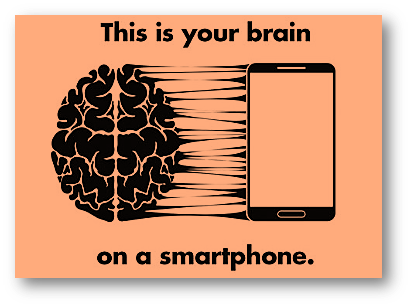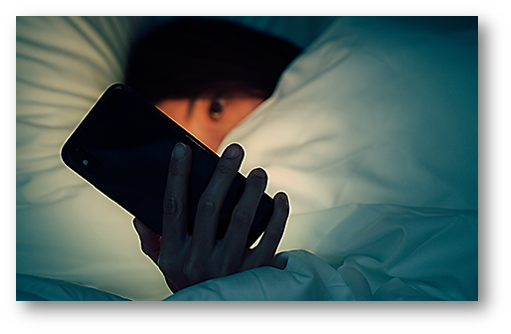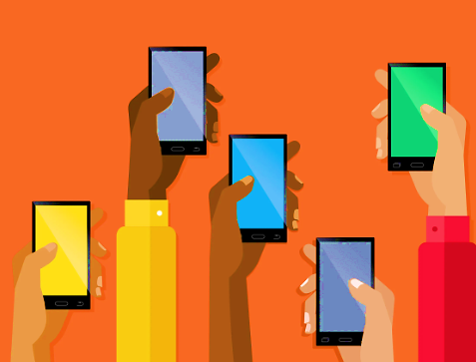A mobile phone (also known as a cell phone, cellular phone, or hand phone) is a portable electronic device used for communication and information exchange over a network of specialized cells (base stations). Mobile phones are a convenient and widely used form of communication that allows people to stay connected with each other and access information and services on the go.
Mobile phones typically have a number of features, including the ability to make and receive calls, send and receive text messages, access the internet, take photos and videos, and run a variety of applications (apps). Many modern mobile phones also have features such as GPS, NFC, and Bluetooth, which allow them to interact with other devices and access additional services.
Mobile phones use wireless technology to connect to a network of base stations, which in turn are connected to the traditional telephone network or the internet. This operates on a variety of frequency bands and uses various technologies, such as GSM, CDMA, and LTE, to transmit and receive data.
MOBILE PHONES HEALTH HAZARDS

There is some debate about the potential health effects of mobile phone use. While some studies have suggested that mobile phone use may be linked to a variety of health problems, such as brain cancer, other studies have not found any clear evidence of a connection.
One potential concern is that the radiofrequency (RF) energy emitted by mobile phones may be absorbed by the body, leading to the heating of the tissue. However, the levels of RF energy emitted by mobile phones are generally low and are regulated to ensure that they do not pose a risk to human health.
Another concern is that the use of mobile phones may be linked to an increased risk of certain types of cancer, such as brain cancer. However, the available evidence does not consistently support this idea. Some studies have suggested that there may be a link, while others have not found any association.
It is important to note that the long-term health effects of mobile phone use are not yet fully understood, and more research is needed to determine whether there are any potential risks associated with mobile phone use. In the meantime, it is a good idea to follow guidelines for safe mobile phone use, such as using hands-free devices and keeping the phone away from the body when it is not in use.
USE OF CELL PHONES RISKS
There are several potential risks associated with the use of mobile phones, including:
Distracted driving:
Using a mobile phone while driving can be extremely dangerous, as it can distract the driver and increase the risk of accidents.
Cyberbullying:
Mobile phones can be used to harass, bully, or intimidate others, particularly among young people.
Invasion of privacy:
Mobile phones can be used to track an individual’s movements or intercept their communications, potentially leading to an invasion of privacy.
Cybercrime:
Mobile phones can be used to commit cybercrimes, such as identity theft or financial fraud.
Health risks:
As mentioned above, there is some debate about the potential health risks associated with mobile phone use, such as an increased risk of cancer or other health problems due to exposure to radiofrequency energy.
It is important to be aware of these risks and take steps to minimize them. For example, you can use hands-free devices when driving, be mindful of your online behavior and privacy, and follow guidelines for safe mobile phone use to reduce potential health risks.
RAYS COMING FROM YOUR CELL PHONES

Mobile phones emit radiofrequency (RF) energy, which is a type of electromagnetic radiation. RF energy is a type of non-ionizing radiation, which means it does not have enough energy to remove tightly bound electrons from atoms. This is in contrast to ionizing radiation, which has enough energy to cause damage to DNA and other genetic material and has been linked to cancer.
The RF energy emitted by mobile phones is generally low and is regulated to ensure that it does not pose a risk to human health. While some people may be concerned about the potential health effects of RF energy, overwhelming scientific evidence suggests that RF energy from mobile phones is not harmful to human health.
It is important to note that the long-term health effects of mobile phone use are not yet fully understood, and more research is needed to determine whether there are any potential risks associated with mobile phone use. In the meantime, it is a good idea to follow guidelines for safe mobile phone use, such as using hands-free devices and keeping the phone away from the body when it is not in use.
CELL PHONE ON YOUR BEDSIDE WHILE SLEEPING

There is some debate about the potential health effects of using a mobile phone while sleeping. The available evidence is not consistent. Some studies have suggested that radiofrequency (RF) energy is emitted by mobile phones. That may interfere with the body’s natural sleep patterns or have other negative effects on sleep. However, other studies have not found any clear association between mobile phone use and sleep.
It is generally recommended to avoid using electronic devices. Mobile phones, in the bedroom, can interfere with the body’s natural sleep patterns and may disrupt sleep. For example, the blue light emitted by electronic screens can suppress the production of the hormone. Named melatonin, which helps regulate sleep, and can make it harder to fall asleep.
If you do use your mobile phone in the bedroom. It is a good idea to follow guidelines for safe mobile phone use, such as using hands-free devices. Keeping the phone away from your head when it is not in use. You can also consider turning off your phone or setting it to “do not disturb” mode. To minimize disruptions to your sleep.
HEALTH RISKS OF MORE SCREEN TIME
Spending a lot of time on screens, such as computers, tablets, and mobile phones. That has been linked to a variety of potential health risks. Some of the potential risks associated with increased screen time include:
Poor sleep quality:
Spending a lot of time on screens can interfere with the body’s natural sleep patterns. This may lead to poor sleep quality. The blue light emitted by screens can suppress the production of the hormone melatonin. Which helps regulate sleep and can make it harder to fall asleep.
Eye strain:
Prolonged screen use can lead to eye strain, dry eyes, and blurred vision.
Neck and back pain:
A lot of time looking down at screens can lead to neck and back pain. As well as other musculoskeletal problems.
Social isolation:
Spending a lot of time in screens may lead to social isolation and reduce face-to-face interaction with others.
Obesity:
Increased screen time is often accompanied by a sedentary lifestyle, which can lead to weight gain and obesity.
It is important to be aware of these potential risks and to take steps to minimize them. For example, you can take breaks from screens. Use good lighting and ergonomic equipment, and make sure to get enough physical activity and sleep.
AVOID EXTRA USE OF CELL PHONE

Here are some tips for controlling your habit of excessive mobile phone use:
Set limits:
Consider setting limits on your phone usage. Such as a certain amount of time per day or specific times when you will not use your phone. You can use the built-in screen time tracking features on your phone. OR Use a third-party app to help you monitor and manage your phone usage.
Turn off notifications:
Consider turning off notifications for apps or features that you don’t really need, or that tend to distract you. This can help reduce the temptation to constantly check your phone.
Create phone-free zones:
Designate certain areas or times as phone-free zones, such as the bedroom or during meals. This can help you focus on other activities and reduce your dependence on your phone.
Find alternative activities:
Look for activities that can help you relax and unwind. Without relying on your phone, such as reading a book, going for a walk, or practicing a hobby.
Seek support:
If you are having trouble controlling your phone usage, consider seeking support from friends, family, or a professional therapist. They can help you develop strategies to manage your phone usage. Address any underlying issues that may be contributing to your excessive phone use.
MAKE A HEALTHY LIFESTYLE FREE OF THE IMAGINARY WORLD OF CELL PHONE
Here are some tips for maintaining a healthy lifestyle in an imaginary world where mobile phones are involved:
Practice good hygiene:
This includes washing your hands regularly, especially before and after handling your mobile phone.
Use your phone mindfully:
Be mindful of how much time you spend on your phone, and try to limit your phone usage to a reasonable amount. Take breaks from your phone and consider setting limits on your phone usage.
Stay active:
In an imaginary world, you can still find ways to stay active and engage in physical activity, even if you are using your phone. This could include going for walks or runs while listening to music on your phone, participating in sports or other activities, or using your phone to track your workouts.
Get enough sleep:
Make sure to get enough sleep each night to help you feel rested and energized. Avoid using your phone before bed, as the blue light emitted by screens can suppress the production of the hormone melatonin and make it harder to fall asleep.
Stay connected:
In an imaginary world, you can still stay connected with others and participate in social activities, even if you are using your phone. Just be sure to balance your phone usage with face-to-face interactions and other activities.
KEYWORDS: Wireless communication, Cellular network, Radiofrequency energy, Electromagnetic radiation, Non-ionizing radiation, free device, Text messaging, Internet access, Apps (applications), GPS (Global Positioning System), NFC (Near Field Communication), Bluetooth, GSM (Global System for Mobile Communications), CDMA (Code Division Multiple Access), LTE (Long-Term Evolution)
REFERENCES:
https://akjournals.com/downloadpdf/journals/2006/3/1/article-p41.pdf
https://www.sciencedirect.com/science/article/abs/pii/S001393512030829X


its so knowledgable..good one